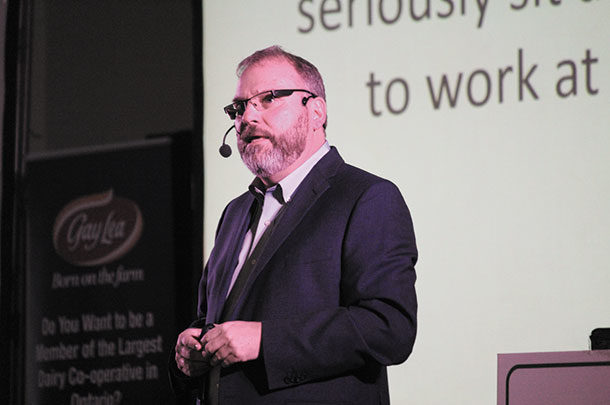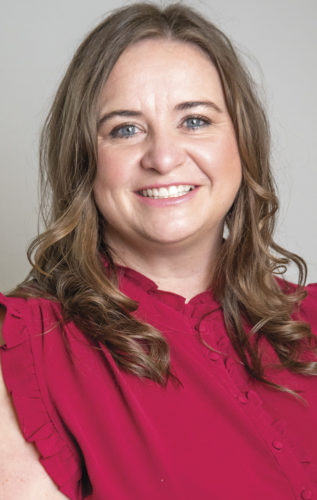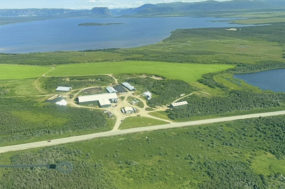Engaging a large crowd of dairy producers at the 2016 South Western Dairy Symposium in Woodstock, Ontario, Gay Lea Foods Chief Executive Officer Michael Barrett began by stating:
“We are looking at what is happening in the industry today and question that the voices cannot remain silent. There has to be a collective voice in order to drive the industry forward.”
First, Barrett described his view of today’s Canadian dairy climate. “I believe the dairy industry has been counting on certain parties to be able to change the industry, and today we are going to have to be able to rely on ourselves.
We are going to have to be able to advocate for and be able to demand change in order to transform,” he said. “Because we are not looking to take down the (supply management) system we have today."
"What we are looking to do is make the current system better. And I think that’s one of the challenges we have today.”
Understanding the industry’s changed priorities and the scope of the problem is crucial for the future sustainability of rural communities. Since appointed CEO 18 months ago, Barrett noted there has been a “dramatic amount of change” taking place in the dairy industry.
“Because it is not only your livelihood; it’s your children’s potential livelihood, it’s your grandchildren’s potential livelihood and the livelihood of the rural communities that you live in,” he stressed.
One thing Gay Lea has done recently to adapt to a changing industry was invite dairy goat producers to become members. The reason, he said, was that goat farmers are also in a state of flux, so it is better to vote together to ensure agriculture sustainability for the future.
Barrett then provided comments on three decisions that have been made since the 2016 Dairy Farmers of Ontario Annual General Meeting and questioned if plans had been made without understanding the consequences:
-
The increase in the price of cream.
Over the last six years, there has been considerable growth in butter, which has been driving the blend price to grow by 2 to 3 percent per year.
“Fat is no longer the enemy of society. We have been reborn. We have seen a renaissance in dairy,” Barrett reported.
With increased cream prices (anywhere between $0.30 and $0.40 per pound), consumption will go down. Gay Lea has already seen its customers scale back their orders (i.e., from 100,000 to 70,000 pounds) because they are not selling as much.
-
The ingredients strategy.
Looking to ensure a sustainable ingredients business in Canada is good for members and all dairy producers.
With the Canadian Dairy Commission (CDC) starting to limit the amount of powder that can be sold to them, it limits the processor return. The last thing needed is for processors to not take the milk – because it will only compound the issue, he said.
-
The ingredient capacity.
Drying plants are getting older (the newest was built by Gay Lea in 2003), and with the average age of a dryer of at more than 30 years old, processors are being forced to question whether or not they can pencil the financial obligation of building a plant, especially with reduced ingredient intake from CDC.
Barrett said it would be more than just setting out on the yellow brick road hoping to find Oz; the industry needs to have a road map to truly understand vision.
“We’ve got to truly understand our vision in this because we just can’t continue to walk out. We can’t continue to be able to make changes in the system without understanding its full implication.”
Leadership is not for the faint of heart
“The one theme that continuously arises is that we need dairy leadership,” Barrett explained. “A mantra that we have at Gay Lea Foods is that we train leadership skills from hourly guys on the floor right to the senior management and from our delegates to our members and directors."
"We have to understand what leadership is because we won’t move forward unless we raise the quality of our leadership. I can see that we have a leadership vacuum – a leadership crisis – that is occurring in the dairy industry, with everybody being concerned about their pieces of the industry without looking at a broader perspective, being able to say we need an industry solution.”
With the increase of imports across the border, there is an impact on the ability to process milk, and that is why there is a cream shortage today. “The reality is that status quo is eroding the income of our farmers, and it is not going to get any better unless we have some leadership in the dairy industry."
"We have to stop having individual voices and have one dairy voice speak. Ego is the enemy of compromise, and the industry is becoming full of egos,” Barrett stated.
Why not?
Barrett quoted Edward Kennedy, who shared the following quote by George Bernard Shaw in his eulogy to his brother Robert, as it can be applied to the dairy industry: “Some men see things as they are and say ‘Why?’ I dream things that never were and say, ‘Why not?’”
It is time to put aside how things are done today in the dairy industry and dream. Spending a lot of time looking backwards, it can be easy to miss opportunities. He said, “We have to be able to look forward and be able to say ‘Why not? Why can’t we change the system?"
"Why can’t we modify the system? Why can’t we dream a little bit to be able to understand how we can grow this dairy industry in Canada? Why can’t we make that investment?’”
Utopian idealist or a gravestone cynic
Excited about what the dairy industry has to offer, the growth that has taken place and the innovation that could take place, Barrett concluded, “I would rather be a utopian idealist who believes that with a little bit of effort and teamwork, you can actually solve this issue. I don’t want to be a gravestone cynic, who says you might as well give up because the sky is falling."
"We can move forward by working together, one voice, dairy leadership and being able to understand that we are indeed on the edge of a renaissance of dairy."
"That if we put the best minds to it, we can create what we really want, a sustainable dairy industry in Ontario, a sustainable rural community in Ontario and an industry that you can pass on to your children and your grandchildren so a way of life can be preserved.” PD
PHOTO: What Gay Lea Foods CEO Michael Barrett says are the dairy industry’s biggest challenges and opportunities. Photo by Lora Bender.










